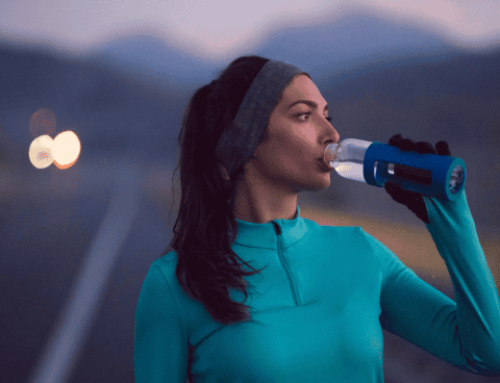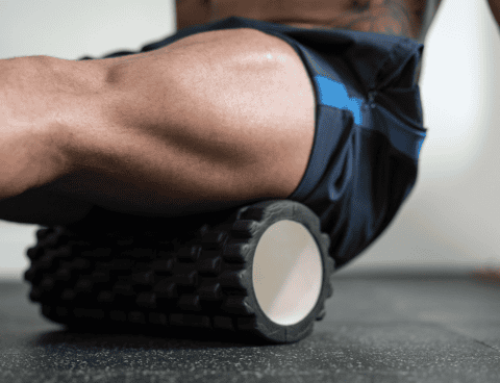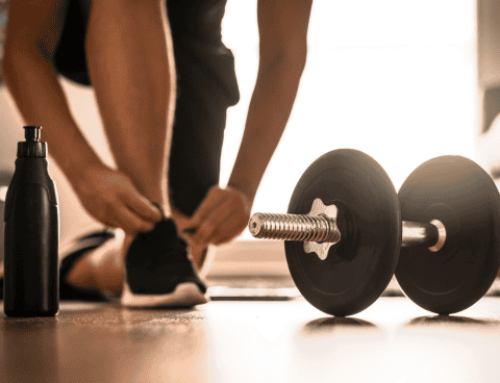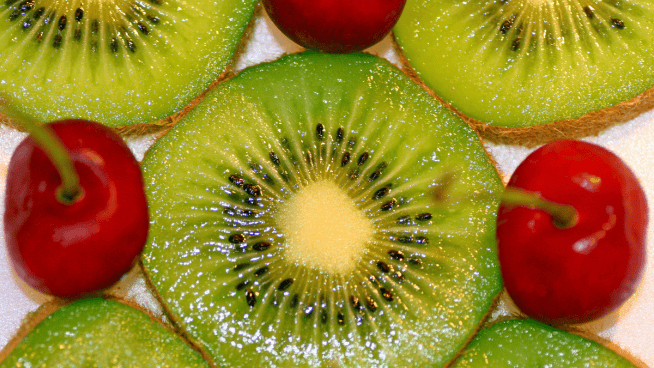Prevent the Effects of Overtraining
Most athletes have overtrained at one time or another and then paid for it by getting sick and losing playing time. If you overdo it, you risk coming down with a virus or infection, thanks to a suppressed immune system.
It’s best to stick to low to moderate training routines, which sports scientists agree have a positive effect on the immune system. The only problem is, you’re not going to smash PB’s or break training plateaus by constantly working at 60 percent of your maximum heart rate.
There is no foolproof method to avoid over-training, but it helps to understand exactly what happens inside the body when we experience this “immune crash.”
Researchers at the University of Queensland in Australia found that high-intensity training for long periods reduces circulating white blood cells, making athletes much more vulnerable to infection and viruses. They also found that cytokines—the immune system messenger cells that alert the body to a virus—were impaired after overtraining.
And a study at the Athletic Club of Bilbao, Spain found that overtraining brought about hormonal changes that caused pathogens—disease-producing agents—to multiply, thrive and cause problems for the body.
To avoiding overtraining, a well-designed workout plan is essential. But, how do you minimize the ill effects if you do overtrain? Scientists from the Bente Pedersen’s group in Copenhagen found that supplementing with antioxidants limits reduction in your immune system. The report also found lower incidences of upper-respiratory tract infections in ultra-marathon runners who supplement with Vitamin C, compared with those who don’t.
In the United States, researchers at the Immunology Center at Loma Linda University Medical Center in California found that consuming carbohydrates during exercise keeps the white blood cell count up and the immune system functioning properly. So, drinking a carbohydrate sports drink during your workout may not only be good for muscle glycogen and energy, but also for your immune system.
Read more:
- Is Overtraining Real?
- Are You Overtraining or Under-Recovering?
- Balance Your Workouts to Avoid Overtraining
Sources:
- Nieman (2003), “Potential nutritional countermeasures to exercise-induced immunosuppression.” Medicina Sportive, 7, pp. E19-28.
- Pyne et al (2000), “Training strategies to maintain immuno-competence in athletes.” International Journal of Sports Medicine. May, 21 Suppl 1, pp. S51-60.
- Gleeson et al (2004), “Exercise, nutrition and immune function.” Journal of Sports Sciences, 22, pp. 115-25.
- Brolinson & Elliot (2007), “Exercise and the immune system.” Clinical Sports Medicine, 26(3),311-319.
- Gleeson (2007), “Immune function in sport and exercise.” Journal of Applied Physiology, 103(2),693-699.
- Gleeson (2006), “Immune system adaptation in elite athletes.” Current Opinion in Clinical Nutrition and Metabolic Care, 9(6), 659-665.
- Mujika, Padilla, Pyne and Busso (2004), “Physiological changes associated with pre-event taper in athletes.” Sports Medicine, 34(13), 891-927.
- D.C. Nieman et al (1990), “The effects of moderate exercise training on natural-killer-cells and acute upper respiratory-tract infections.” International Journal of Sports Medicine, 11,467-73.
- H.B. Nielsen (2003), “Lymphocyte responses to maximal exercise: a physiological perspective.” Sports Medicine, 33,853-67.
- Pacque, Booth, Ball & Dwyer (2007), “The effect of an ultra-endurance running race on mucosal and humeral immune function.” Journal of Sports Medicine and Physical Fitness, 47(4), 496-501.
- Pedersen & Toft (2000), “Effects of exercise on lymphocytes and cytokines.” British Journal of Sport Medicine, 34, 246-251.
- Pedersen, Rohde & Zacho (1996), “Immunity in athletes.” International Journal of Sports Medicine, 36, 236-45.
- Gokhale, Chandrashekara and Vasanthakumar (2007), “Cytokine response to strenuous exercise in athletes and non-athletes—an adaptive response.” Cytokine, 2007 Nov; 40(2):123-7; 2007 Oct 22.
- Heath, Ford, Craven, Macera, Jackson & Pate (1991), “Exercise and the incidence of upper respiratory tract infections.” Medical Science in Sports and Exercise, 23: 152-157.
- Nieman, Johansen, Lee & Arabatzis (1990), “Infectious episodes in runners before and after the Los Angeles Marathon.” Journal of Sports Medicine and Physical Fitness, 30: 316-328, 1990.
- Pedersen & Bruunsgaard (1995), “How physical exercise influences the establishment of infections.” Sports Medicine, 19: 393-400, 1995.
RECOMMENDED FOR YOU
Prevent the Effects of Overtraining
Most athletes have overtrained at one time or another and then paid for it by getting sick and losing playing time. If you overdo it, you risk coming down with a virus or infection, thanks to a suppressed immune system.
It’s best to stick to low to moderate training routines, which sports scientists agree have a positive effect on the immune system. The only problem is, you’re not going to smash PB’s or break training plateaus by constantly working at 60 percent of your maximum heart rate.
There is no foolproof method to avoid over-training, but it helps to understand exactly what happens inside the body when we experience this “immune crash.”
Researchers at the University of Queensland in Australia found that high-intensity training for long periods reduces circulating white blood cells, making athletes much more vulnerable to infection and viruses. They also found that cytokines—the immune system messenger cells that alert the body to a virus—were impaired after overtraining.
And a study at the Athletic Club of Bilbao, Spain found that overtraining brought about hormonal changes that caused pathogens—disease-producing agents—to multiply, thrive and cause problems for the body.
To avoiding overtraining, a well-designed workout plan is essential. But, how do you minimize the ill effects if you do overtrain? Scientists from the Bente Pedersen’s group in Copenhagen found that supplementing with antioxidants limits reduction in your immune system. The report also found lower incidences of upper-respiratory tract infections in ultra-marathon runners who supplement with Vitamin C, compared with those who don’t.
In the United States, researchers at the Immunology Center at Loma Linda University Medical Center in California found that consuming carbohydrates during exercise keeps the white blood cell count up and the immune system functioning properly. So, drinking a carbohydrate sports drink during your workout may not only be good for muscle glycogen and energy, but also for your immune system.
Read more:
- Is Overtraining Real?
- Are You Overtraining or Under-Recovering?
- Balance Your Workouts to Avoid Overtraining
Sources:
- Nieman (2003), “Potential nutritional countermeasures to exercise-induced immunosuppression.” Medicina Sportive, 7, pp. E19-28.
- Pyne et al (2000), “Training strategies to maintain immuno-competence in athletes.” International Journal of Sports Medicine. May, 21 Suppl 1, pp. S51-60.
- Gleeson et al (2004), “Exercise, nutrition and immune function.” Journal of Sports Sciences, 22, pp. 115-25.
- Brolinson & Elliot (2007), “Exercise and the immune system.” Clinical Sports Medicine, 26(3),311-319.
- Gleeson (2007), “Immune function in sport and exercise.” Journal of Applied Physiology, 103(2),693-699.
- Gleeson (2006), “Immune system adaptation in elite athletes.” Current Opinion in Clinical Nutrition and Metabolic Care, 9(6), 659-665.
- Mujika, Padilla, Pyne and Busso (2004), “Physiological changes associated with pre-event taper in athletes.” Sports Medicine, 34(13), 891-927.
- D.C. Nieman et al (1990), “The effects of moderate exercise training on natural-killer-cells and acute upper respiratory-tract infections.” International Journal of Sports Medicine, 11,467-73.
- H.B. Nielsen (2003), “Lymphocyte responses to maximal exercise: a physiological perspective.” Sports Medicine, 33,853-67.
- Pacque, Booth, Ball & Dwyer (2007), “The effect of an ultra-endurance running race on mucosal and humeral immune function.” Journal of Sports Medicine and Physical Fitness, 47(4), 496-501.
- Pedersen & Toft (2000), “Effects of exercise on lymphocytes and cytokines.” British Journal of Sport Medicine, 34, 246-251.
- Pedersen, Rohde & Zacho (1996), “Immunity in athletes.” International Journal of Sports Medicine, 36, 236-45.
- Gokhale, Chandrashekara and Vasanthakumar (2007), “Cytokine response to strenuous exercise in athletes and non-athletes—an adaptive response.” Cytokine, 2007 Nov; 40(2):123-7; 2007 Oct 22.
- Heath, Ford, Craven, Macera, Jackson & Pate (1991), “Exercise and the incidence of upper respiratory tract infections.” Medical Science in Sports and Exercise, 23: 152-157.
- Nieman, Johansen, Lee & Arabatzis (1990), “Infectious episodes in runners before and after the Los Angeles Marathon.” Journal of Sports Medicine and Physical Fitness, 30: 316-328, 1990.
- Pedersen & Bruunsgaard (1995), “How physical exercise influences the establishment of infections.” Sports Medicine, 19: 393-400, 1995.











